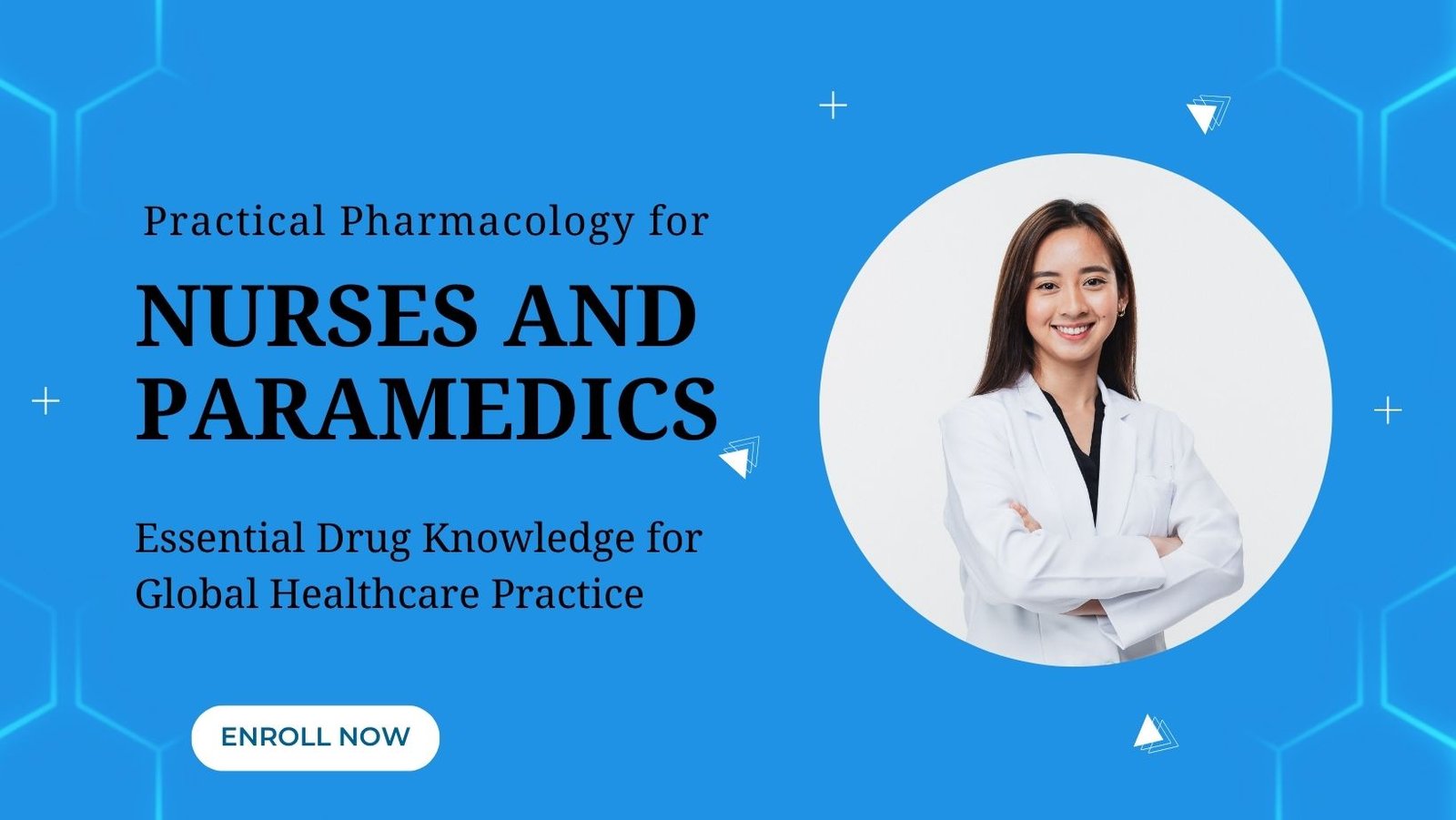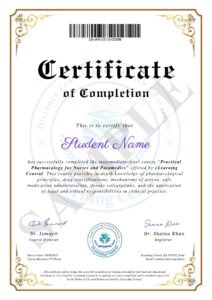Practical Pharmacology for Nurses and Paramedics

About Course
Practical Pharmacology for Nurses and Paramedics is a comprehensive online course designed to empower healthcare professionals with the knowledge and skills needed to navigate the complexities of pharmacology in clinical practice. Hosted on an intuitive Learning Management System (LMS) with dedicated tutor support, this course offers a structured journey through the science of drugs, blending theoretical foundations with real-world applications. Tailored for a global audience, it focuses on universal pharmacological principles, ensuring relevance across diverse healthcare settings, from hospitals to community care environments.

The course is structured into engaging modules that cover critical topics, such as drug mechanisms, administration techniques, and patient safety, without delving into specific lesson details. Through interactive video lectures, case studies, and quizzes, learners will explore how to apply pharmacological knowledge to enhance patient care. The flexible, self-paced format allows nurses and paramedics to balance professional responsibilities while deepening their expertise in medication management.
With an emphasis on practical, evidence-based learning, this course equips participants to confidently handle medications, monitor therapeutic outcomes, and educate patients effectively. Expert-led content and ongoing tutor interaction ensure learners receive personalized guidance, making Practical Pharmacology for Nurses and Paramedics an essential step toward advancing clinical competence and improving patient outcomes worldwide.
Course Content
Introduction to Pharmacology
-
What is Pharmacology?
-
Sources and Nature of Drugs
-
Dosage Forms and Drug Nomenclature
-
Routes of Drug Administration
-
Factors Affecting Drug Action
-
Drug Storage and Safety Guidelines
-
Knowledge Review: True/False Questions
-
Knowledge Review: Multiple Choice Questions
